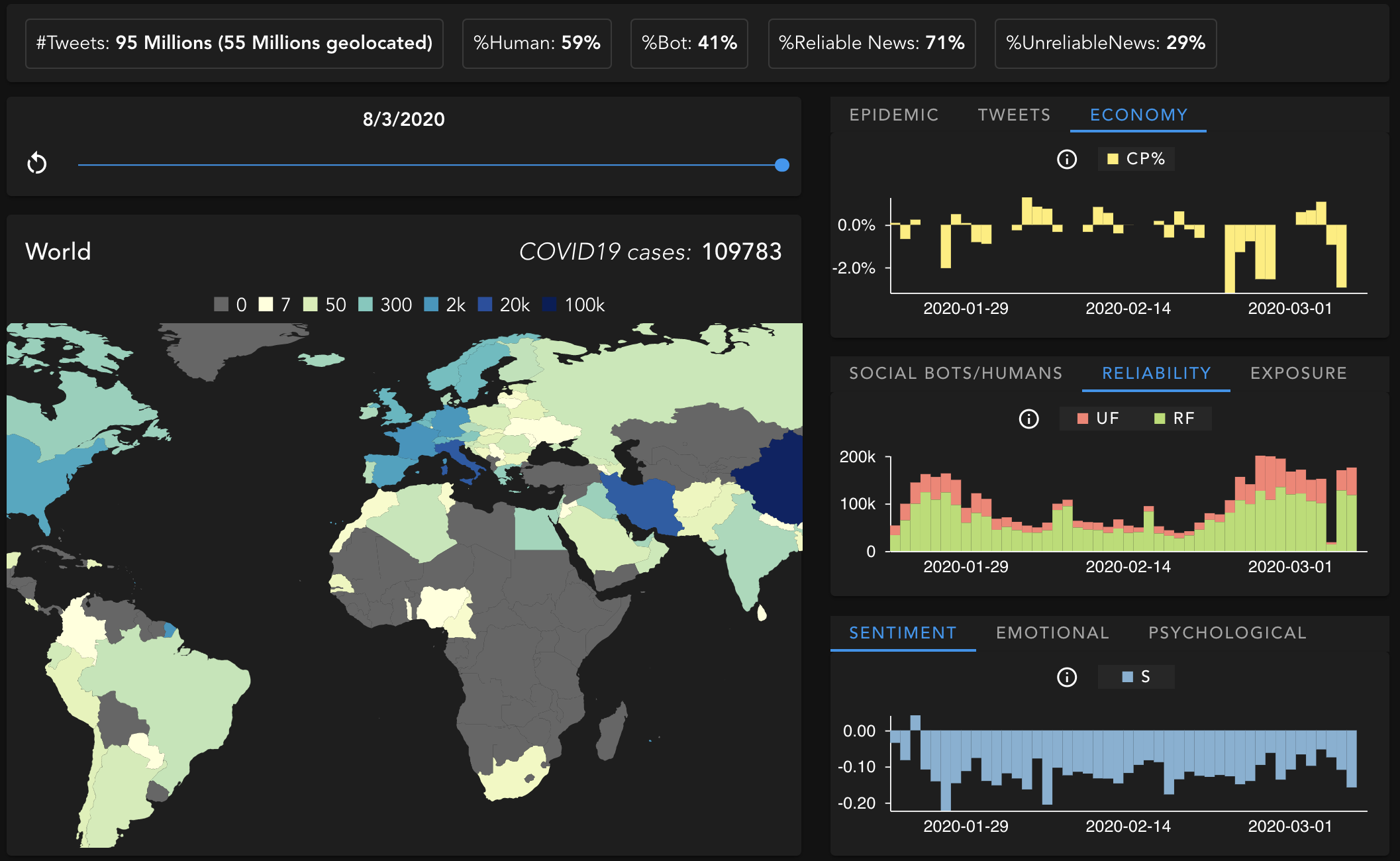COVID-19 and fake news in the social media

The platform created by Fondazione Bruno Kessler to analyze the relationship between the evolution of the COVID-19 epidemic and the information dynamics on social media is available online. Early analysis found for some countries, including Italy, faults in correct information generated by the behavior of users and bots. A shift towards more reliable sources occurred as the contagion began to spread within these countries.
(v.l.) A new study by Fondazione Bruno Kessler provides a currently unique picture worldwide on the relationship between the evolution of the COVID-19 epidemic and information dynamics on the social media. The analysis of these phenomena, based on public Twitter chats, is now available to everyone through an online digital platform that allows users to learn more on the situation in each country from the outbreak and throught the development of the epidemic. This resource has now been made available to the entire scientific and professional community to further analysis and to facilitate comprehension in a situation of serious social emergency such as the current one.
The team that conducted the study was led by Manlio De Domenico, a physicist of complex systems and Head of the CoMuNe Lab Unit at Trento based Fondazione Bruno Kessler. “The data collected through the analysis of Twitter chats worldwide”, De Domenico said, “allow us to verify how, for some countries including Italy, France and the United States, the spread of contagion in each country was preceded by a rapid and unusual increase in the activity of humans and artificial agents, the so-called social bots, aimed at disseminating unverified information attributable to various categories of fake news. We may think of this phenomenon as a real infodemic, i.e., an uncontrolled propagation of information posing a high social hazard. Once the infection spread from China to these countries, we saw – within them – a shift towards more reliable sources. Basically, when the epidemic wave reaches the country, it is observed that, perhaps out of fear, people tend to be more selective about the news they wish to share on the web and a rise in the reliability indicators is observed”.
“Our platform, created as part of the CHuB project”, Riccardo Gallotti, FBK researcher, statistical physicist of collective human behavior points out, “will allow anyone to monitor the risk of infodemic exposure in all countries where Twitter is used”.
According to Pier Luigi Sacco, an FBK researcher, expert in public policies, faculty associate at the Berkman Center for Internet & Society of Harvard University and professor at IULM University: “Infodemics are the socio-cognitive equivalent of infectious processes. Spreading information or ideas that systematically mislead public opinion and lead it to make wrong choices during a health crisis becomes a health issue”.
“The features of an Infodemic,” De Domenico concluded, ” are very similar to those of an epidemic, with millions of users unaware of being exposed to unreliable news posted by social manipulators, not necessarily human. Further analysis of the data available will allow to identify many other phenomena that need a better understanding on the part of the scientific community, of communication operators and of political decision-makers “.
You may visit the platform at the link below: https://covid19obs.fbk.eu/
Viviana Lupi
Professional Journalist – Press Officer
Digital Communication e Grandi Eventi
Via Sommarive, 18 – 38123 Trento (I)
tel. +39 0461 314 617
website www.fbk.eu | magazine.fbk.eu